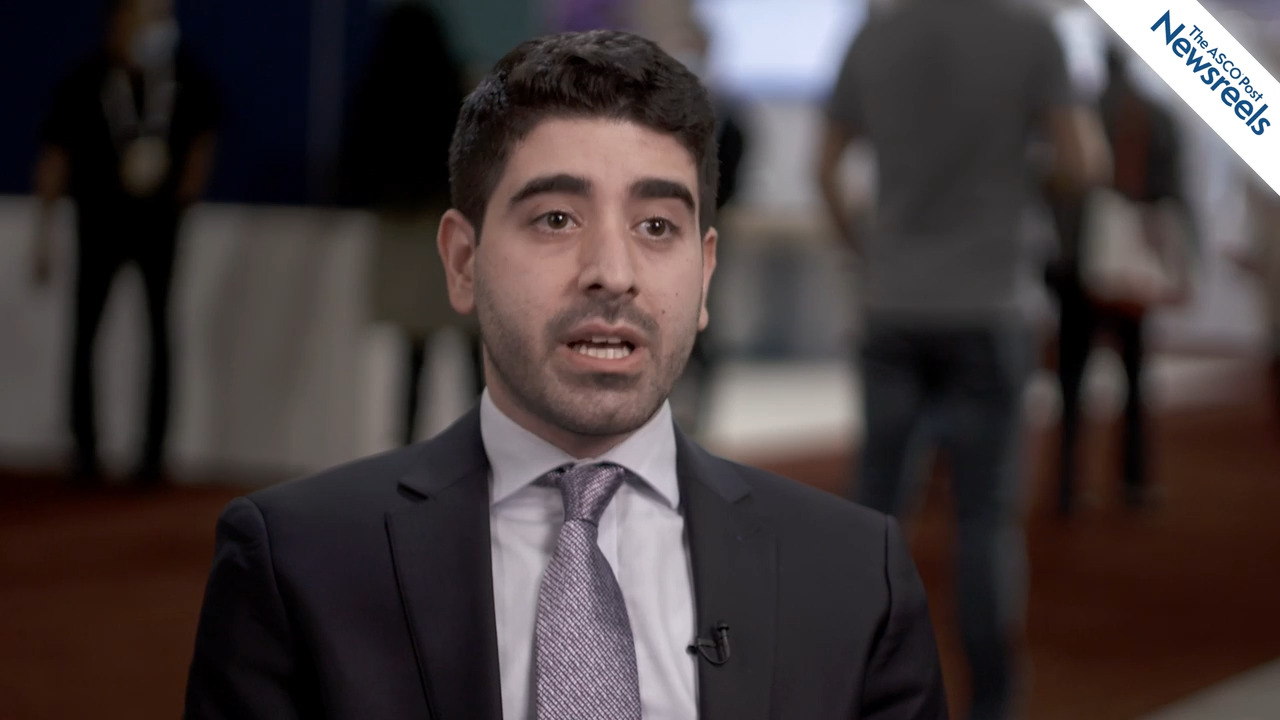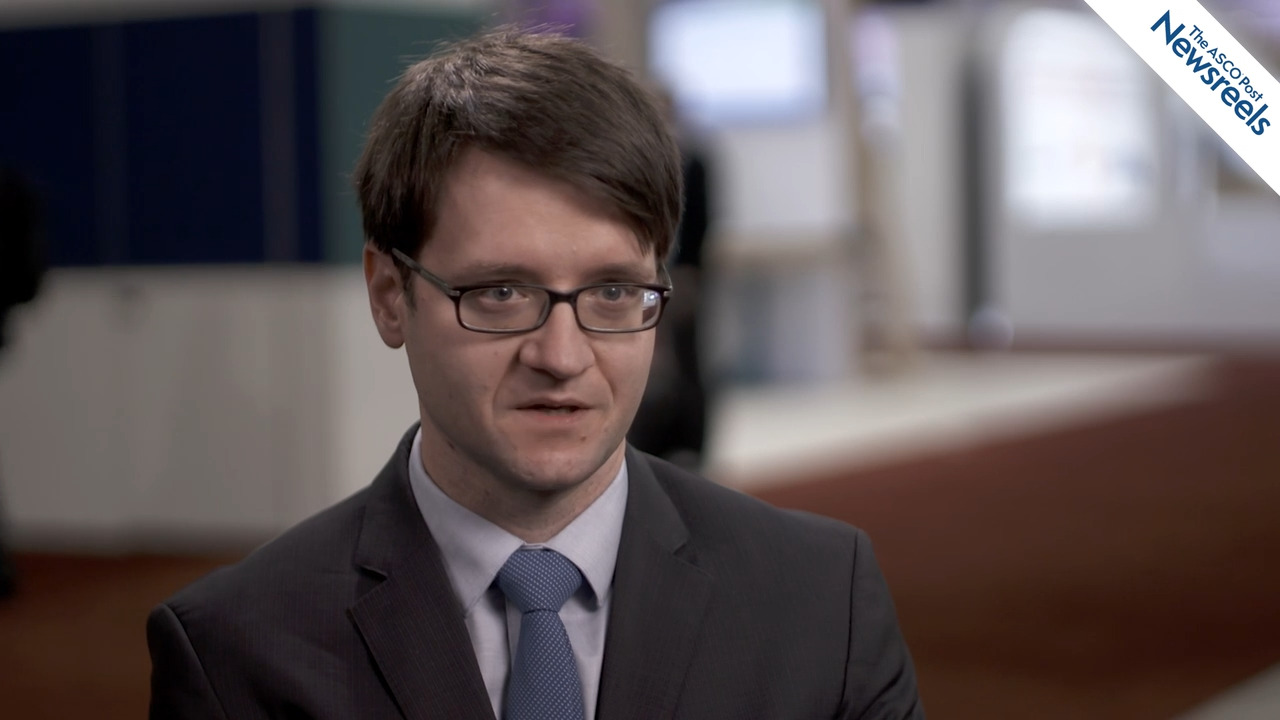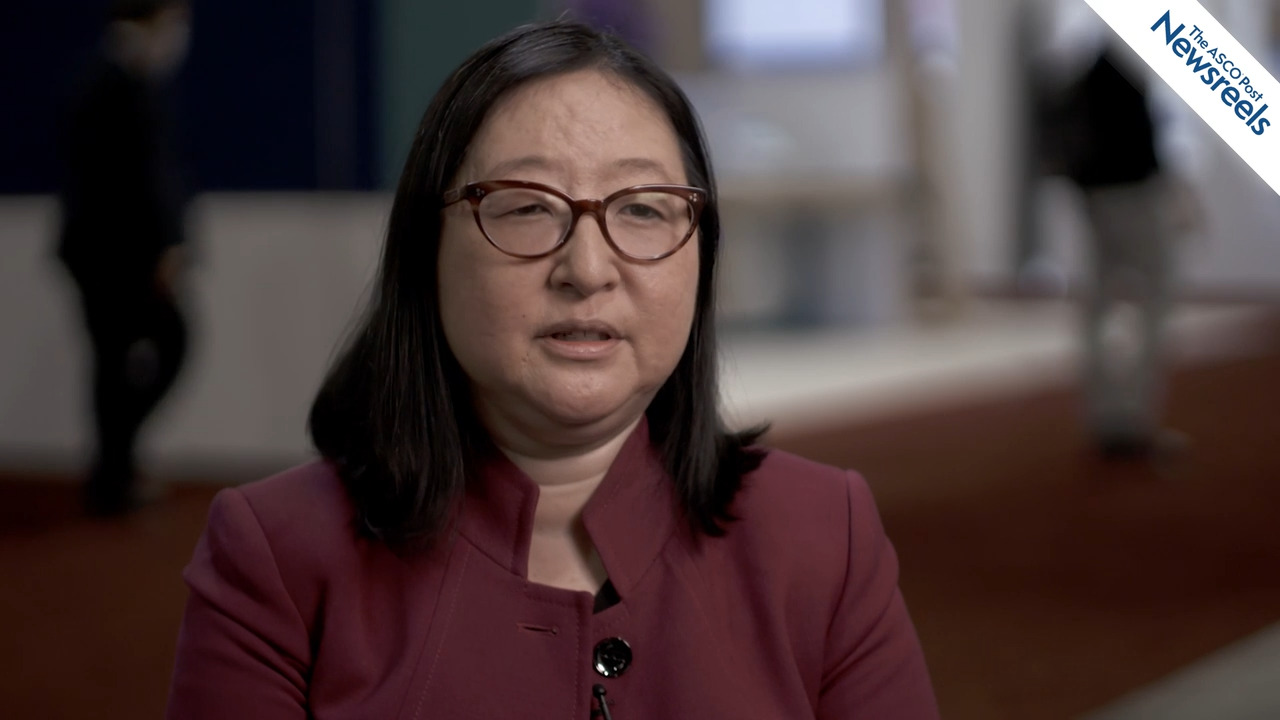Daniel A. Ermann, MD, on DLBCL: Outcomes With Consolidative Radiation Therapy
2021 ASH Annual Meeting & Exposition
Daniel A. Ermann, MD, of the Huntsman Cancer Institute, University of Utah, discusses results from the largest retrospective study on outcomes utilizing radiotherapy in early-stage diffuse large B-cell lymphoma. Adding radiation to front-line multiagent chemotherapy was associated with a survival benefit for all patients with early-stage disease. An overall survival benefit was seen with the addition of radiation to front-line multiagent chemotherapy for patients with nodal involvement and those with specific extranodal involvement in the testes, thyroid, skin and soft tissue, and head and neck (Abstract 49).
The ASCO Post Staff
Tarek H. Mouhieddine, MD, of The Mount Sinai Hospital and The Icahn School of Medicine at Mount Sinai, discusses data that suggest patients with heavily pretreated, predominantly triple-class refractory multiple myeloma who relapse after treatment with bispecific antibodies may still have good outcomes when sequentially treating with other immunologic treatments (Abstract 821).
The ASCO Post Staff
Leslie S. Kean, MD, PhD, of Dana-Farber/Boston Children's Cancer and Blood Disorders Center, discusses findings from her analysis of the International Blood and Marrow Transplant Research Database, which led to the recent FDA approval of abatacept for the prevention of acute graft-vs-host disease (GVHD) in adult and pediatric patients. The data suggest improved overall survival with the immunosuppressant abatacept in combination with a calcineurin inhibitor and methotrexate following 7/8 HLA–matched unrelated allogeneic hematopoietic stem cell transplantation (Abstract 3912).
The ASCO Post Staff
Andrew Matthews, MD, of the Abramson Cancer Center, University of Pennsylvania, discusses findings from a retrospective study at an academic institution, which showed there was no statistically significant difference in overall survival between induction with CPX-351 and venetoclax/azacitidine for adults with acute myeloid leukemia. Prospective studies to confirm similar effectiveness with careful attention to side effects, quality of life, and impact on transplant outcomes may help clinicians decide between these therapies (Abstract 795).
The ASCO Post Staff
Eunice S. Wang, MD, of Roswell Park Comprehensive Cancer Center, discusses phase III results showing that gilteritinib and azacitidine led to significantly higher composite complete response rates in patients with newly diagnosed FLT3-mutant acute myeloid leukemia who are ineligible for intensive induction chemotherapy. Overall survival was similar to that of azacitidine alone (Abstract 700).
The ASCO Post Staff
Romanos Sklavenitis-Pistofidis, MD, of Dana-Farber Cancer Institute, discusses study findings on a next generation of clinical assays to assess both tumor biology and immune state, as well as common clinical biomarkers in the marrow or blood. These biomarkers may accurately predict which patients with smoldering multiple myeloma might benefit from early treatment, monitor response to immunotherapy, and improve patient outcomes (Abstract 330).





